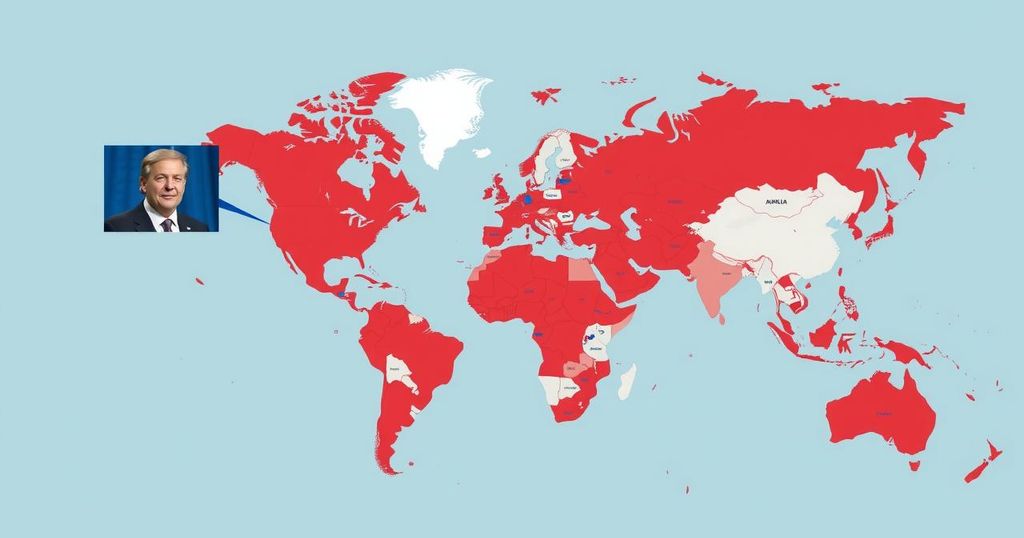World news
AFRICA, AFRICAN NATIONAL CONGRESS, ASIA, BASHA, BASHAR AL - ASSAD, BHARATIYA JANATA PARTY, BRITAIN, CONSERVATIVE PARTY, EUROPE/ASIA, GOVERNANCE, GOVERNMENT, LABOUR PARTY, LIBERAL DEMOCRATIC PARTY, MACKY SALL, MOHAMMAD AL GERGAWI, NA, NORTH AMERICA, OPPOSITION, PARLIAMENTARY SEATS, POLITICS, PRESIDENTIAL ELECTION, RUSSIA, SOUTH AFRICA, UNITED ARAB EMIRATES, UNITED STATES
Oliver Grayson
0 Comments
The 2024 Global Anti-Incumbent Wave: A Call for Hopeful Governance
The global political landscape in 2024 has seen a dramatic anti-incumbent wave, resulting in the removal of numerous leaders amid widespread voter dissatisfaction. Key electoral losses and political upheaval across various countries reflect a fundamental shift in public sentiment, driven by social media influence and economic conditions. To reclaim citizens’ trust, leaders must focus on creating a hopeful and inclusive agenda that prioritizes engagement and empowerment.
In 2024, a significant shift in global politics has materialized with a remarkable trend of anti-incumbent sentiment resulting in the ousting of numerous established leaders. This wave began with notable events such as the defeat of Senegalese President Macky Sall in March, who attempted to delay elections, and the South African ANC losing its majority in June, a first in over 30 years. Similarly, key politicians across multiple nations, including India’s Prime Minister Narendra Modi and Britain’s Conservative Party leadership, have faced electoral losses or declining support.
By mid-2024, the political landscape had continued to evolve dramatically: Britain’s Labour Party triumphed in a decisive general election, Japan’s ruling Liberal Democratic Party lost its longstanding majority, and no-confidence votes resulted in the ousting of French Prime Minister Michel Barnier and German Chancellor Olaf Scholz. Other leaders, like Bangladeshi Prime Minister Sheikh Hasina and Syrian President Bashar al-Assad, experienced drastic political upheaval, underscoring a widespread rejection of incumbent authorities. Amid these disruptions, social media appears to play a pivotal role, fostering black-and-white narratives that catalyze public dissent.
Despite early tendencies favoring far-right populists, recent global elections reveal a complex relationship with social media’s influence, indicating that mainstream parties can still secure victories in the face of similar challenges. This outcome highlights the necessity for governments to adapt their digital communications and cultivate direct relationships with citizens, addressing feelings of alienation and disconnection. Voter feedback indicates widespread perceptions of government as “irrelevant,” “authoritarian,” and “self-serving,” which necessitates immediate action to restore trust.
Furthermore, economic conditions have shown to impact voter sentiment decisively. In nations such as Spain and Greece, leaders with improving economies gained support, while Germany and France struggled with declining growth rates, leading to political instability. As leaders contemplate strategies to suture the trust deficit exacerbated by economic difficulties, it is crucial for them to shift focus from short-term responses to envisioning long-term aspirations that inspire citizens amid adversity. Historical precedence indicates that the resilience of progressive government agendas can flourish even in economic downturns.
Political innovation must also harness the capabilities of diverse thinkers within societies. Collaborative engagement with creative leaders in both public and private sectors is essential. Communities across the globe express a desire for realistic, passionate, and hopeful governance that empowers citizens while reinforcing democratic institutions. Successful leaders should aspire to meet these expectations, cultivating an atmosphere of optimism that can ultimately resonate with a more engaged and trusting public.
The global political landscape has entered a transformative phase marked by an anti-incumbent wave, where leaders worldwide are being challenged or removed from power. This trend is reflective of citizens’ growing dissatisfaction with established governance structures, often exacerbated by economic hardships and social media influence that contribute to public discontent. As governments grapple with rising polarization and eroding trust, they must prioritize strategies that engage citizens and offer hopeful, sustainable plans for the future, moving beyond mere crisis management amidst shifting political allegiances.
In light of the global electoral upheaval in 2024, political incumbents have faced unprecedented challenges to their authority. The interplay of public discontent fueled by social media, along with economic conditions, necessitates a paradigm shift towards engagement and restoration of trust. To regain the confidence of citizens, leaders must embrace a politics of hope, prioritizing the empowerment of individuals and envisioning a future that enables all to aspire for improvement and participation in the democratic process.
Original Source: www.aspistrategist.org.au




Post Comment